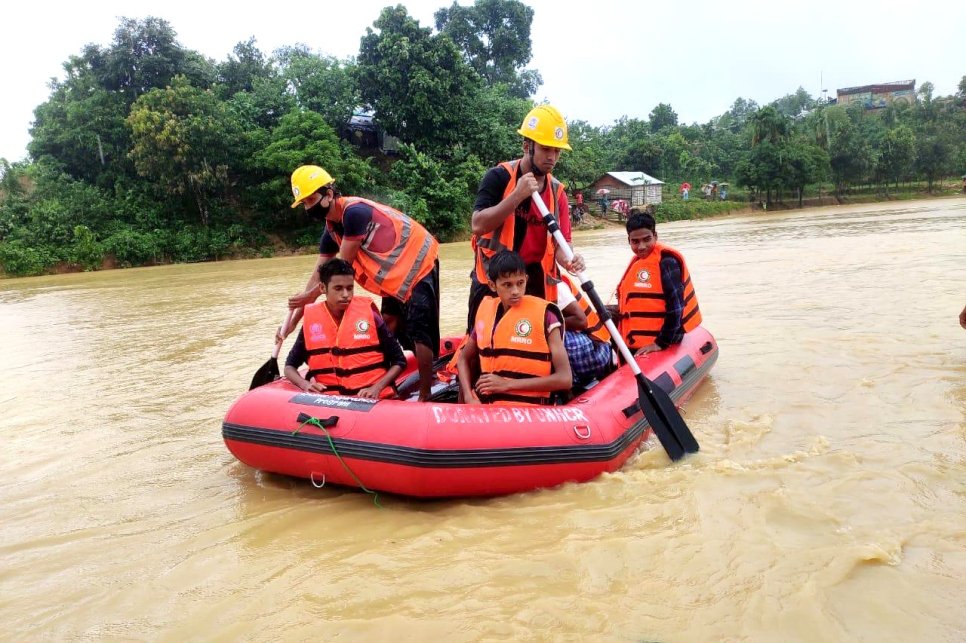
Rohingya refugees are paddled to safety at a site in Bangladesh’s Cox’s Bazar, after heavy monsoon rains triggered flash floods and landslides. © BDRCS
UNHCR, the UN Refugee Agency, is deeply saddened by the tragic deaths of six Rohingya refugees as three days of heavy monsoon rains and strong winds pelted massive refugee sites in Bangladesh’s Cox’s Bazar on Tuesday, causing flash floods and landslides.
According to initial reports, more than 12,000 refugees have been affected while an estimated 2,500 shelters have been damaged or destroyed.
In the last 24 hours alone, over 300mm of rain fell on camps hosting more than 800,000 Rohingya refugees. That’s nearly half the monthly rainfall average for July in one day. More heavy downpours are expected in the next few days with the monsoon season stretching over the next three months. The situation is further compounded by the COVID-19 pandemic. There is currently a strict national lockdown in response to rising cases across the country.
In support of the government-led response, UNHCR’s network of Emergency Response Teams have been deployed, to provide immediate support and assistance to affected families and to those forced to temporarily relocate. Teams are also assessing the damage to shelters and initiating immediate shelter repairs and site improvements. Ensuring access to essential services for all those affected is another priority.
Refugee volunteers trained by UNHCR, and partners are also working day and night in heavy rain to help families in urgent need. In some cases, this has involved rescuing refugees from shelters destroyed by landslides. So far, more than 5,000 refugees have temporarily relocated to other family member’s shelters or communal facilities.
The adverse weather, latest landslides and floods further exacerbate the suffering and massive humanitarian needs of the Rohingya refugees in Bangladesh. To date, the 2021 Joint Response Plan (JRP) for the Rohingya humanitarian crisis in Bangladesh has received only US$274 million, roughly 30 per cent of the US$943 million required for the response this year.
Share on Facebook Share on Twitter